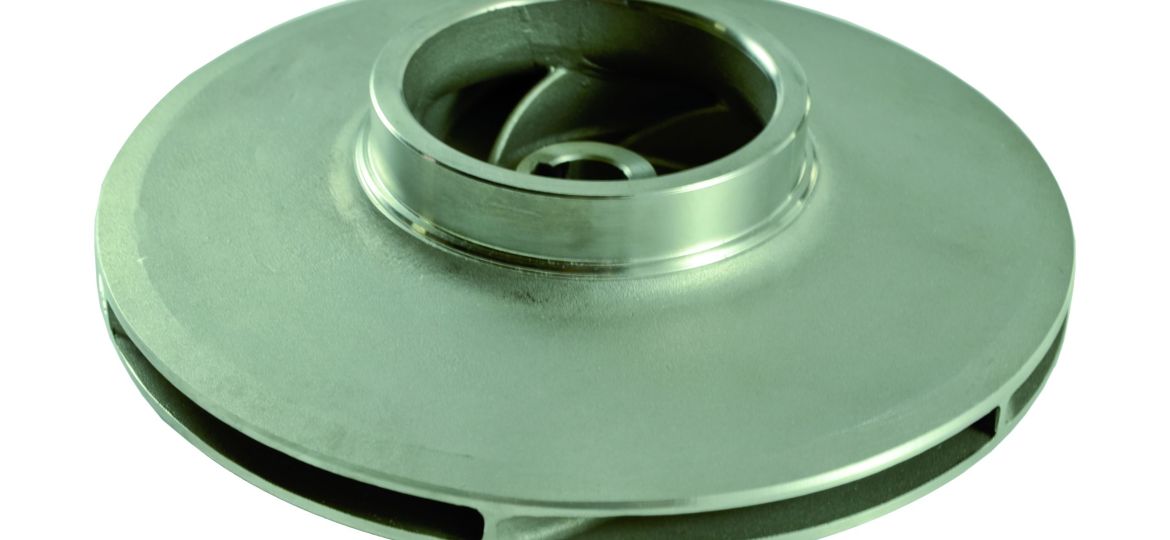
The term “centrifugal pump impeller” refers to an essential component of this mechanism, responsible for the transfer of energy to the fluid to be pumped. This device rotates inside a casing and, through its design, performs a centrifugal movement that pushes the liquid outwards. The characteristics of the impeller, such as its geometry and material, are fundamental in determining the efficiency of the pump and its overall performance, influencing factors such as flow rate, head and energy consumption.
Centrifugal pump impeller: types, characteristics and performance
The impeller is a bladed disc that rotates inside the volute, a snail-shaped casing. It is connected to a motor through a shaft, which allows it to turn at high speed. When the pump is running, the liquid enters the impeller and, due to the centrifugal force generated by the rotation, is pushed towards the periphery of the volute. This motion allows the liquid to exit the pump with a higher pressure than its inlet pressure, making the impeller fundamental for converting the mechanical energy of the motor into the kinetic and pressure energy of the fluid.
Types of centrifugal pump impeller: closed and open
There are various types of impeller, each suitable for different applications. In general, we can divide them into two main categories:
Closed impeller
The closed impeller is characterised by a counter disc that completely encloses the blades. This configuration is ideal for clean fluids and applications that require high heads, where the liquid is forced with greater pressure. Some of the advantages of a closed impeller include:
- Increased wet surface: This allows for better hydraulic performance, as it reduces energy loss caused by friction.
- No leakage between the blades: the enclosure prevents fluid leaks between adjacent blades, improving efficiency.
- High head applications: closed impellers are particularly suitable for pumps that need to generate high pressures.
Open impeller
Open impellers do not have a front counter disc, which makes them more suitable for transporting fluids containing solids. On these impellers, the blades are exposed at the front and move close to the pump casing, allowing small debris to pass through without blocking operation. Below are some specific aspects:
- Passage of solids: the lack of a counter-disc allows the fluid to transport solid particles without obstructing the impeller.
- Lower hydraulic efficiency: compared to the closed impeller, the open impeller has slightly lower efficiency since there is the possibility of liquid leakage between one blade chamber and the next.
- Suitable for low head applications: This configuration is ideal for pumps where the required pressure is not high, but the ability to handle solids is essential.
The presence of the Inducer: a solution against cavitation
Associated with a centrifugal pump impeller, in some products we find the inducer, an axial impeller equipped with one or two helical blades. The inducer’s task is to reduce the risk of cavitation through the pre-rotation of the fluid and moderate pressurisation at the inlet to the centrifugal part. Pump cavitation is an unwanted phenomenon that can cause damage to the pump. The inducer helps reduces it, thus improving the pump’s lifespan and efficiency.
How impeller machining affects performance
The type and quality of the machining of the impeller have a significant impact on the performance of a centrifugal pump. Key factors include:
- Head: the pump’s ability to achieve a certain pressure is closely linked to the type of impeller. Closed impellers tend to offer a higher head than open ones.
- Flow rate: the amount of fluid transported in a given period may vary depending on the configuration of the blades and the rotation speed.
- Energy efficiency: The efficiency of the impeller affects the energy required to run the pump. Well-designed and built impellers allow for lower energy absorption, reducing operating costs.
The CDR range: closed and open impeller centrifugal pumps
CDR Pompe offers a wide range of pumps to meet the needs of different industrial applications. Among our most popular models are:
- Closed impeller pumps: such as the UTS magnetic drive pump, which guarantees high efficiency and a reduction in losses. This pump is ideal for transporting clean fluids with high hydraulic efficiency.
- Open impeller pumps: the XTS and XTN magnetic drive pumps are ideal for applications that require the passage of solids in the fluid, thanks to the open structure of the impeller.
In addition, mechanical seal pumps such as the CCL and UCL can be configured with both a closed and open impeller, offering maximum versatility and adaptability for different applications.
Choosing the right impeller is crucial for significantly optimising the performance of a centrifugal pump. A closed impeller is ideal for those looking for efficiency and high pressure with clean fluids, while an open impeller offers greater versatility for fluids containing solids.
To find out more about our solutions or for personalised advice on centrifugal pumps suitable for specific needs, please fill out the contact form. Our team is ready to help you find the perfect solution.

